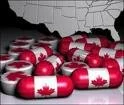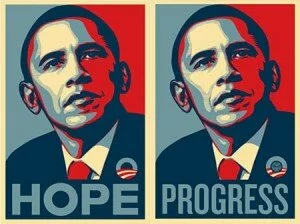We’ve received a lot of questions from the eDrugSearch.com community about the Pharmaceutical Market Access and Drug Safety Act of 2009, the proposed legislation that would enable Americans, once and for all, to legally purchase prescription drugs from Canada.
Here some common questions about the bill, along with answers provided by the bill’s sponsors:
Q: Why is this bill necessary?
A: American consumers are charged the highest prices in the world for the same medicines that are available in other major, industrialized nations at a fraction of the cost. The Congressional Budget Office estimates this legislation will save U.S. consumers more than $50 billion over the next decade. The legislation will allow American consumers to import FDA–approved prescription drugs at the substantially lower prices available on the world market.
Q: How will it work?
A: Individual consumers will be able to purchase prescription medicines from registered Canadian pharmacies for their personal use or the personal use of a family member, via mail–order or the Internet. The FDA will be required to make available on its Web site a list of the Canadian pharmacies that are approved to ship prescription drugs to Americans. Drugs imported by American consumers would have to be in a 90–day supply or less, accompanied by a valid prescription.
Q: From what countries can prescription drugs be purchased under the act?
A: Individual Americans can purchase medicines from Canada via mail–order or the Internet from Canadian pharmacies registered with the FDA. In addition, the bill allows U.S.–licensed pharmacies and drug wholesalers to import FDA–approved medications from Europe, Australia, New Zealand, and Japan and pass along the savings to their American customers.
Q: Won’t Big Pharma just shut off supplies to Canadian pharmacies that sell to Americans?
A: For some time, Pfizer, Glaxo Smith Kline, Eli Lilly and others have worked to shut off the supply of drugs to those in Canada that export drugs to American consumers. Under the proposed legislation, such tactics are deemed an unfair and discriminatory trade practice and will not be permitted.
Q: What about Big Pharma’s claims that the proposed legislation would reduce their profits, and that research and development of new drugs would suffer as a result?
A: Drug companies spend a significant (and increasing) portion of their budgets on product promotion. In fact, Fortune 500 pharmaceutical companies on average spend nearly three times more on marketing, advertising, and administration than they do on R&D. And yet, the pharmaceutical industry never talks about needing to cut back on drug advertising. In addition, American taxpayers heavily subsidize pharmaceutical research both through the tax code and research at the National Institutes of Health.
Q: How much will American consumers save as a result of the Pharmaceutical Market Access and Drug Safety Act of 2009?
A: The Congressional Budget Office (CBO) estimates the legislation would reduce total drug spending by $50 billion over 10 years, with $10 billion of that in savings to the federal government. It’s important to note that the CBO found these significant savings even after adjusting for the weakening of the U.S. dollar and assuming that the dollar would remain at the same weak level over the course of its estimate. If the value of the dollar were to strengthen, the actual savings could increase substantially.
This needed legislation is currently in committee, where it could easily stall without your support. Please call your Congressman and Senator and ask them to bring the Pharmaceutical Market Access and Drug Safety Act to a vote.
As readers of this blog know, we have been following the proposed Pharmaceutical Market Access and Drug Safety Act carefully as it wends its way through Congress. So far, neither the House nor Senate versions of the bill have gotten very far since their introduction in early March, although there has been some talk that the Senate bill may be put to a vote within a matter of weeks.
For those of you who would like to learn more about this proposed legislation, which would allow American consumers to legally purchase prescription drugs from Canada and other Tier One countries, you can read the full text of the House bill here, and a summary here.
Why do we need this legislation passed? The bill makes the case in seven points:
And what would passage of the bill achieve? Here’s a summary:
Pharmaceutical Market Access and Drug Safety Act of 2009 – Amends the Federal Food, Drug, and Cosmetic Act (FFDCA) to revise provisions governing the importation of prescription drugs. Waives the limitation on importation of prescription drugs that have been exported from the United States.
Prohibits the importation of a qualifying drug unless such drug is imported by: (1) a registered importer; or (2) an individual for personal use.
Establishes registration conditions for importers and exporters. Requires the Secretary of Health and Human Services to inspect places of business, verify chains of custody, inspect facilities, and determine compliance with registration conditions.
Sets forth provisions governing the importation of qualifying drugs that are different from U.S. label drugs, including standards for judging such differences.
Prohibits manufacturers from: (1) discriminating against registered exporters or importers; (2) causing there to be a difference in a prescription drug distributed in the United States and one distributed in a permitted country; (3) engaging in actions to restrict, prohibit, or delay the importation of a qualifying drug; or (4) engaging in any action that the Federal Trade Commission (FTC) determines discriminates against a person that engages or attempts to engage in the importation of a qualifying drug.
States that the resale in the United States of prescription drugs that were properly sold abroad is not patent infringement.
Requires the Secretary to educate consumers regarding prescription drug importation.
Sets forth provisions governing the sale of prescription drugs through an Internet site. Includes the dispensing or selling of a prescription drug in violation of this Act as a prohibited act under FFDCA.
Prohibits the introduction of restricted transactions with unregistered foreign pharmacies into a payment system or the completion of such transactions using a payment system.
We wholeheartedly support the Pharmaceutical Market Access and Drug Safety Act, and we encourage you to contact your Congressman and Senator to show your support as well.
 A new U.K. report, “Prospects for Legalizing Drug (Re-)Importation to the United Statesâ€, has been released on the topic of U.S. citizens buying drugs from Canada and other Tier One countries, such as the U.K., Australia and Japan. The report promises insight and analysis on these key questions:
A new U.K. report, “Prospects for Legalizing Drug (Re-)Importation to the United Statesâ€, has been released on the topic of U.S. citizens buying drugs from Canada and other Tier One countries, such as the U.K., Australia and Japan. The report promises insight and analysis on these key questions:
- Will the drug reimportation bill pass?
- Where would supplies come from?
- What would be the risks and savings for consumers?
- What would be the risks and opportunities for industry players?
The report, issued by London-based Report Buyer, presents itself this way:
With public and private payers across the country seeking to save every healthcare dollar to get through the economic recession, [Sen. Byron] Dorgan senses a ‘bit of a tailwind’ behind his proposal this time. His supporters are tackling their critics head on with claims that rather than it being dangerous the measure will actually improve drug safety…
Whether you want to protect your business in the US, assess the potential for becoming a player in what could be a new channel or a supplier to it, or are concerned about the knock-on effects in the 20 countries initially named as potential sources (inc. Australia, Canada, France, Germany, Italy, Japan, Spain and the UK) this report is essential reading.
Unfortunately, the report is a pricey $1,600, so unless you have a specific business interest in this legislation, you’re probably better off waiting to see how things unfold rather breaking the piggy bank for this one.
Or you can just keep reading the eDrugSearch Blog. After all, we’re free.

We reported last week that some clever maneuvering by Sen. Byron Dorgan and Sen. John McCain had put drug reimportation from Canada back on the Congressional front burner, by attempting to attach it to a bill placing tobacco products under FDA oversight.
Unfortunately, the Dorgan/McCain bid was thwarted and the tobacco bill passed without mention of Canadian drugs.
Dorgan is hopeful, however, that his gambit will at least get Senate Majority Leader Harry Reid moving on this issue. As Government Executive reports:
Reid said he “hopes to move forward” on a drug reimportation bill. A bipartisan group of senators hoped to attach the measure to a bill giving the FDA power to regulate cigarettes … Reid did not allow a vote on the amendment, saying it could endanger the bill, but he told Sen. Byron Dorgan, D-N.D., that he would seek a separate vote. It is unclear when the bill might come up, Reid’s spokeswoman said.
That doesn’t sound particularly encouraging, does it? Dorgan claims Reid has promised to put Canadian drugs before the Senate within “a couple of weeks.”
One can’t help but wonder if Reid’s actual plan is to delay the bill until broader healthcare legislation is put before Congress, which could be in the fall — or later.

The other day, I came across a wonderful op-ed piece in the Mountain Mail newspaper of Socorro, New Mexico, by a man named Rick Coddington. The article is titled, “Paid-Off Politicians Set To Stick It To Us Again.”
Here are some salient excerpts:
If you caught last week’s column, you know I was traumatized by watching the movie “Sicko†by Michael Moore. It was traumatic because it rocked the foundations of my core beliefs that “socialized medicine†ala Canada and England were the worst things in the world.
I had known about the movie for a long time and would have never watched it because, after all, it was made by Moore, who I considered to be lower than pond scum. Still, rather than face the possibility of being stupid about something, I actually coughed up three bucks and endured the irritating and boring style of Moore and came away “with a different point of view†(as Johnny Cash once sang).
Now I am looking at the possibility that I had fallen hook, line and sinker for a load of lies from my peeps in the conservative movement. To try to decide where the truth lies, I started looking up on the Internet what Canadians say about their supposedly terrible health-care system. Another eye opener –- mostly they love it. That’s not because they are idiots, it is because they evidently really do get much better care than their stupid neighbors to the south…
Everything bad we have been told about “socialized medicine†is covered in the movie. Examples: long waits for service – lies; crummy, underpaid doctors – lies; unavailability of quality drugs – lies; hidden costs – lies; unaffordable, nation-bankrupting costs – lies.
Speaking of costs … if you read my column much, you know I buy drugs from Canada for pennies on the dollar. Even with prescription drug coverage, I can buy –- outright –- drugs from Canada for less than the co-pay costs to get them here!
What does that tell you about the cost of prescriptions? It tells me the drugs actually cost less than the insurance co-pays! If you look at the “list price†of the drugs, you can see (in some cases) the profit is 300 to 400 percent!…
The only difference in the drugs is the profit. The Canadian pharmacy from which I have been buying for years is obviously making money. In contrast to that, if you come down to the good-old U.S., not only are we paying three or four times what the drugs are worth, we are being taxed into oblivion to “bail out†the poor corporations that would just go broke if we tax-saps weren’t shoveling money to them.
What is all this really about? Profits and greed. Outrageous, mind-boggling greed. It’s about CEOs who pay themselves hundreds of millions of dollars to … what -– lose money? They aren’t losing anything personally! That handful of insiders is getting obscenely rich when the rest of us are suffering loss.
They are able to do this with one simple talent. They bribe politicians.
Can I get an “amen”?

In March, bills to finally legalize the purchase of Canadian drugs by U.S. citizens were introduced in both houses of Congress. With a solidly Democratic Congress, the bills seemed to be a legislative slam dunk.
But with politicians kicking around big-picture healthcare issues, smaller pieces of legislation like this one (as well as the similarly worthy Healthy Workforce Act) have been put on the back burner.
Now, thanks to some clever maneuvering by longtime Canadian pharmacy advocates in the Senate, including Byron Dorgan and John McCain (pictured above), Canadian drug reimportation is back on the forefront of the legislative agenda.
Last week, Dorgan (D-ND) proposed the “Pharmaceutical Market Access and Drug Safety Act of 2009†to be introduced as an amendment to an anti-smoking bill that is expected to pass Congress. McCain backed Dorgan by insisting on a vote on the amendment.
Said McCain on the Senate floor:
This issue has been around for a long time … We should address it. It is important to the American people. It really does have a lot to do with the [Food and Drug Administration] — with the pharmaceuticals in this country and availability.
At least one observer, Cole Werble at the IN VIVO Blog, thinks the chances for getting drug reimportation passed may be improving.
The environment around the reimportation debate is changing also. When the proposal first came up, opponents were able to raise the convincing threat of unsafe or poorly manufactured products from outside the US slipping into the domestic drug supply if reimportation were passed.
However, with many manufacturers outsourcing production of active ingredients to a wide variety of low-cost manufacturing locales, they are effectively eroding their own defense-of-quality argument. Domestic suppliers (brand and generic) have had enough well-publicized problems assuring the quality of their products with components from overseas to create a more favorable environment for reimportation.
Mark my words here — if Dorgan and friends can get Congress to vote on Canadian pharmacies, they will vote for them, because that is what (according to the most recent polling) 70 percent of the American people want.

I recently came across a remarkable blog rant by a man named Jim Thornton, a competitive swimmer at age 56. Under a list of his latest swimming times, he shared the story of some of the struggles he’d recently been having with healthcare and prescription drug costs.
An excerpt:
Our health insurance went up to $1711.50 a month for a plan that requires each member of the family to spend $1400 a year before complete coverage kicks in. For a variety of complicated reasons, we cannot alter any of the terms of the policy. It is a take it or leave it situation. If we leave it, my wife and I have been taking statin drugs and antidepressants and will not be able to obtain individual policies that are not even more exorbitant than the extortionary policy we already have.
As close to unaffordable as it is this year, it seems certain that even modest increases in the years to come … ensure we will not be able to pay, most likely within two or three years.
We got audited by the IRS three weeks ago, and a large part of this was because our accountant set up a plan by which I could pay my wife a salary and give her and her family health insurance as a benefit. By doing this, I could deduct as a business expense not just the premiums but the out of pocket expenses, too. The IRS is challenging this…
So, let me get this straight:
US Big Pharma is granted the legal right to join New Zealand as the only two countries in the industrialized world to shamelessly tout ads on TV direct to consumers for drugs, creating demand for antidepressants, cholesterol lowering drugs, penis inflaters, hay fever and allergy meds, and so forth, all for chronic conditions that often require life time treatment, trumping up demand.
US Big Health Insurance is granted the legal right to cherry pick through “medical underwriting” any individual who has ever taken any of the above drugs and deny him or her coverage or charge exorbitant rights.
Big Pharma, furthermore, lobbies to block the reimportation of their drugs from Canada and pretty much any other country in the world, where the exact same thing costs anywhere from 50 percent to 8 times less. The rational: the FDA cannot assure the safety of reimported drugs, even ones in factory sealed bottles…
If you work for a big company, you can qualify for cheap health insurance, but this for all too many people just becomes yet another way to keep you as a virtual indentured servant, putting up with abusive managers demanding you do unethical things to up the profit margins, work nonstop, ignore your family, etc.–all because they know a lot of people have become so stressed out and fat and unhealthy because of their jobs they CAN’T quit because they won’t be insurable.
What, I ask you, is not a PONZI scheme in our modern land of liberty?
Can you relate?

We’ve heard endless whining by Big Pharma and its water carriers in Congress about how President Obama’s plans to reduce prescription drug costs will all but destroy the U.S. pharmaceutical industry.
An investment analyst who covers the industry thinks otherwise.
Jason Napodano, in a report for Zacks Investment Research published earlier this month, writes:
When President Obama’s administration released the proposed budget for the upcoming fiscal year, drug stocks quickly dropped. Fears of socialized medicine, or “Hillary-Care 2.0″ turned investors away from the sector.
Was the drop warranted? … The net result of healthcare reform is likely to be limited on big pharmaceutical earnings … At this point, the fear of healthcare reform seems entirely more bark than bite.
Napodano walks step by step through the healthcare provisions in the president’s budget and concludes that the negative impact on the pharmaceutical industry will be minimal. He writes specifically about the anticipated impact of proposed legislation that will allow Americans to buy drugs from Canadian pharmacies:
A consortium of 4 Senators (Dorgan D-ND, Stabenow D-MI, McCain R-AZ, and Snowe R-ME) introduced in early March 2009 the, “Pharmaceutical Market Access and Drug Safety Act.” The bill would allow U.S.-licensed pharmacies and drug wholesalers to import FDA-approved medications from Canada, Europe, Australia, New Zealand and Japan – areas where drug prices are on average 35% to 55% lower than in the U.S. The legislation would also allow individual consumers to purchase prescription drugs for personal use from safe, reliable, FDA-inspected Canadian pharmacies.
The Congressional Budget Office (CBO) estimates the bill would save American consumers $50 billion over the next decade, including more than $10 billion in federal government savings. If we assume the savings are linear, or average roughly $5 billion per year, that represents approximately 2% of the total U.S. $250 billion pharmaceutical market. The EPS impact from a 2% haircut to the top-line of each pharmaceutical company, assuming drug reimportation hits everyone equally, is extremely manageable, and will most like average no more than 1% to 2% per company if enacted.
That’s right — while the legislation would be a huge relief for seniors, the uninsured and others struggling with prescription drug costs, it’s a drop in the bucket for Big Pharma.
Shed no tears for the pharmaceutical industry. They’ve been enjoying double-digit profits on your back for far too long.

Dr. Sanjay Gupta recently sat in for Larry King and had former president Bill Clinton as his guest. Clinton had some interesting things to say about the problem of high drug costs — driving home the point that our current system of corporate welfare for Big Pharma just isn’t working.
Here are some excerpts of Clinton’s remarks, which I’ve organized by talking point:
Americans Pay More for Less
The McKenzie Study done a couple of years ago said that we pay $66 billion a year more for medicine and that at least our older populations consume relatively less per capita than other wealthy countries.
Our Government Is Subsidizing Big Pharma
We have made a bargain with our pharmaceutical companies. We’ve said to them for decades now, we love having you in America. We’re proud of you. We know you have to spend a lot of money on research and then you market the drugs and all. So we will eat your research and development costs in American prices so that you can sell exactly the same drugs you sell to us for less money in Canada and Europe … Keep in mind, Europe has a lot of very successful drug companies and they don’t do this.
This Subsidization Does Not Help Americans
So how can we reach a different arrangement so that we keep the drug companies healthy enough and we keep them developing new medicine? The system we’ve got is not working very well. They don’t have a lot of new medicines in the pipeline … Meanwhile, we keep eating all these costs and countries just as wealthy as we are, are getting the same drugs made by the same people for less money, which is why there was so much opposition to allowing re-importation from Canada. The one good place to start is what President Obama has proposed, letting the federal government bargain [with pharmaceutical companies].
Big Pharma’s Profits Have Been 3x Greater Than Wal-Mart’s
For most of the 1990s and the early part of this decade, they earned 18 percent, which is a huge return. You know, Wal- Mart is, what, 5 or 6 percent. And it is fascinating to see that at the same time … the number of new drugs in the pipeline seems to be slowing down. So we need to examine both how we can both get the benefits of [medical] advances and how we can lower the cost to the consumers.
Clinton is right. Corporate welfare is not helping America; it’s only helping Big Pharma’s shareholders. We need to alter our course — and do it now.
As anticipated, bills to finally legalize the purchase of Canadian drugs by U.S. consumers were introduced in both houses of Congress this week.
Here’s a news release excerpt on the Senate bill:
U.S. Senators Byron Dorgan (D-ND), Olympia Snowe (R-ME), John McCain (R-AZ), and Debbie Stabenow (D-MI) introduced critical drug importation legislation today that will reduce the cost of prescription drugs in the United States. The Senators said their legislation, the “Pharmaceutical Market Access and Drug Safety Act,” will bring consumers immediate relief and will ultimately force the pharmaceutical industry to lower drug prices in the United States.
The Congressional Budget Office estimates the bill would save American consumers $50 billion over the next decade, including more than $10 billion in federal government savings.
The bill allows U.S.-licensed pharmacies and drug wholesalers to import FDA-approved medications from Canada, Europe, Australia, New Zealand and Japan and pass along the savings to American customers. This approach will allow Americans to benefit from prices in these countries, which are 35 to 55 percent lower than in the U.S., while still enabling consumers to receive medications at a local pharmacy. The legislation would also allow individual consumers to purchase prescription drugs for personal use from safe, reliable, FDA-inspected Canadian pharmacies…
“As Americans struggle with increasing health care costs during the deepest recession since World War II, more and more individuals are forced to skip doses or split pills, neglecting their health needs to keep food on the table,†said Senator Snowe, a member of the Health Subcommittee. “By implementing a safe prescription drug importation program, we will increase competition within the domestic prescription drug market which, in turn, will ensure more Americans have access to safe and affordable medications.”…
“For far too long Americans have seen health care costs – especially prescription drug costs – increase year after year,†said Senator John McCain. “Re-importation legislation would allow access to safe and effective prescription drugs at much lower prices than are available in the United States. If enacted, the legislation will provide the much needed relief to American families, especially seniors and others on fixed incomes, who are facing tough economic times.â€
And here’s a news report excerpt on the House version of the bill:
As more Americans find themselves struggling to pay for their prescription drugs, United States Representatives Marion Berry (D-AR) and Jo Ann Emerson (R-MO) introduced a bill Wednesday to help lower the costs of pharmaceuticals for consumers.
“The high cost of prescription drugs reduces access to life-saving medications, particularly for the millions of individuals who lack prescription drug coverage,” said Berry. “Prescription drugs can be imported safely and effectively into the U.S. while at the same time providing significant savings to consumers. This bill will help individuals get the medicines they need by lowering costs and ensuring the integrity of our safety standards are met.”
“The unnatural barriers to competition on prescription drug costs prevent the appropriate medicines and the appropriate doses from going to the Americans who need their prescriptions filled as part of their doctor’s treatment. Furthermore, during a time when millions of American families are making cuts to their budgets and retirees have lost substantial amounts of their life savings in the market, we should be working especially diligently to find safe ways to reduce the costs of medicines. This is a straightforward proposal with bipartisan support in Congress, and now is the time to take up this measure,†said Emerson.
Hallelujah.
-
-
Search Blog Posts
-
Save Even More Money!
-

-
Trending Content
-
Watch our YouTube Video
-
Categories
Big Pharma Buy prescriptions online Canadian drugs Drug costs Drug reimportation Drug safety eDrugSearch.com FDA Health 2.0 Healthcare100 Healthcare blogs Healthcare solutions Low-cost drugs Medicare Part D Merck Online pharmacies Online pharmacy safety Pfizer Pharma bloggers Pharmaceutical companies Pharmaceutical marketing Pharma cheerleaders Prescription drug abuse Prescription drug prices Prescription drugs Prescriptions Wal-Mart drug plan -
Blogroll
- Bullet Wisdom
- Bulverde Business Directory
- Christian Counseling San Antonio Tx.
- Christian Schools in San Antonio Texas
- Christian Social Network
- Christians United for Israel
- DrugWonks.com
- Eye on FDA
- GoozNews
- Health 2.0
- Hunting Forum
- In the Pipeline
- Jesus Christ Our King
- John Hagee Ministries
- Kevin, M.D.
- Local Search Marketing
- My $299 Website
- Pharm Aid
- Pharma Marketing
- PharmaGossip
- Pharmalot
- San Antonio Asphalt
- San Antonio Life Insurance
- San Antonio Pressure Washing
- Storage New Braunfels Tx
- Texas Wildlife Supply
- The Angry Pharmacist
- The Health Care Blog
- The Peter Rost Blog
- World Vision
-
Tags
big pharma Canadian drugs canadian pharmacies canadian pharmacy consumer reports craig newmark divine healing Drug costs drug prices Drug reimportation eDrugSearch.com FDA Fosamax Generic drugs healing scriptures Health 2.0 healthcare reform Hypertension Jehova Rophe Jesus Christ Lipitor Metformin miracles nabp online pharmacy dictionary online prescriptions osteoporosis peter rost Pharmacies pharmacists pharmacychecker pharmacy spam phrma Prescription drugs prescription medication Proverbs 3:5-8 reimportation relenza Roche saving money SSRI swine flu Tamiflu The Great Physician The Lord our Healer -
Recent Tweets
- eDrugSearch Blog Rank on the Healthcare100: http://t.co/VJprL4LZWl [#]
- New blog posting, How to Get Prescription Medication Without Health Insurance - http://t.co/1ZdLavB87d [#]
- 10 Tips for Safer Prescription Drug Use http://t.co/GFnMIN1mCy [#]
- New blog posting, How to Beat High Drug Prices By Comparing Low Cost Pharmacies - http://t.co/fsZ0stNZme [#]
-
Archives
-
Recent Comments
- Heather Sturges on What is the Difference Between Effexor and Cymbalta?
- Lupe Machol on Cost of diabetes drugs has nearly doubled
- Manpower For Hospital In Pune on Why is Medicine Cheaper in Canada?
- Jen on How a Canadian Pharmacy Can Help You Offset Drug Price Hikes
- nino iarajuli on Vending machine dispenses prescription drugs